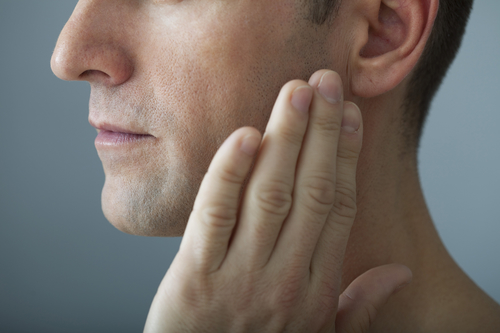What’s The Best Way to Floss
We all know we should floss, but it can be tough. Part of this is because flossing can feel like an extra task in an already busy day, but it...

If you’ve ever suffered through a period of chronic jaw pain, you know exactly how frustrating, limiting, and life-altering it can be. Between the loss of full jaw function and the daily discomfort, a less-than-healthy jaw presents big problems. What if you could prevent that kind of pain from affecting your life? By learning a little more about your habits and taking a closer look at your daily life, you can help put off jaw problems and prevent TMJ pain.
Unfortunately, for some patients, no amount of home prevention can stop jaw discomfort from taking hold. When you’re feeling like there isn’t a way to manage your jaw on your own, it’s time to get in touch with a professional. Scroll down for more information on Botox for TMJ at the end of this post.
You know that we’re all unique individuals, and our jaw pain follows suit. What causes jaw pain for one person may not bother another. Of course, there are common factors that tend to lead to jaw dysfunction and discomfort.
We all take on a little more than we can chew from time to time. But if you’re overextended on a regular basis, that stress is going to get to you. Make sure that you take time out of your busy day to focus on relaxation and relieve your day-to-day anxieties. Relaxation is different for everyone – you will need to do some exploring to find what’s effective for your own anxiety.
Some people relax through exercise, and others find activities like meditation and yoga very calming. Others benefit from spending some alone time focusing on their own personal care, or creating artwork or playing a musical instrument. Reflect on your favorite activities and identify those that make you feel best.
Stress causes tension in many muscles throughout your body, with the most vulnerable being your jaw, neck, head and shoulders. When you have this kind of muscle pain, you feel more irritable and easily frustrated. You begin to feel like a different person. It’s common to lose interest in your hobbies and dread each day of work. But getting back to normal can be as simple as taking time to destress. You’ll feel better during the day, and sleep more soundly at night – and your jaw will get a much-needed rest.
Many adults clench and grind their teeth as a stress outlet – and they do it without realizing. This often takes place at night, so it’s difficult to notice what’s going on and seek treatment. If you schedule regular dental exams, your dentist will point out signs of grinding and recommend that you use a night guard to protect your teeth while sleeping. One noticeable symptom is flat patches on the bite surfaces of your teeth.
A mouth guard will protect your enamel from gnashing and grinding against other teeth. Some guards also stabilize your lower jaw to prevent it from moving at night. Your dentist will evaluate your needs and pick the guard that will work best.
While not necessary for every patient, orthodontic treatment can be helpful for some. If the patient’s bite is not properly aligned, the lower jaw strains to fit into the upper. This can lead to strain on the TMJ, and potential disorders after years of harmful movements. The discomfort is likely to grow worse over time. Check with your dentist to see whether orthodontic treatment could be productive.
As we mentioned, preventing serious dental problems will help you avoid jaw pain. This means catching issues before they’re able to grow. Most patients should see the dentist every 6 months, and some more frequently (depending on periodontal disease risk). Ask Dr. Hoffman what he recommends at your next exam.
If you’ve tried a variety of options and haven’t found relief, we’d love to tell you more about Botox treatment. Therapeutic Botox has a wide variety of applications, and it’s especially productive against jaw pain. Injections to your jaw joint will help reduce clenching and stop harmful amounts of pressure from affecting your jaw. You will still be able to use your jaw normally, but it will no longer seize up and cause you pain. If you’re interested in learning more, reach out today.